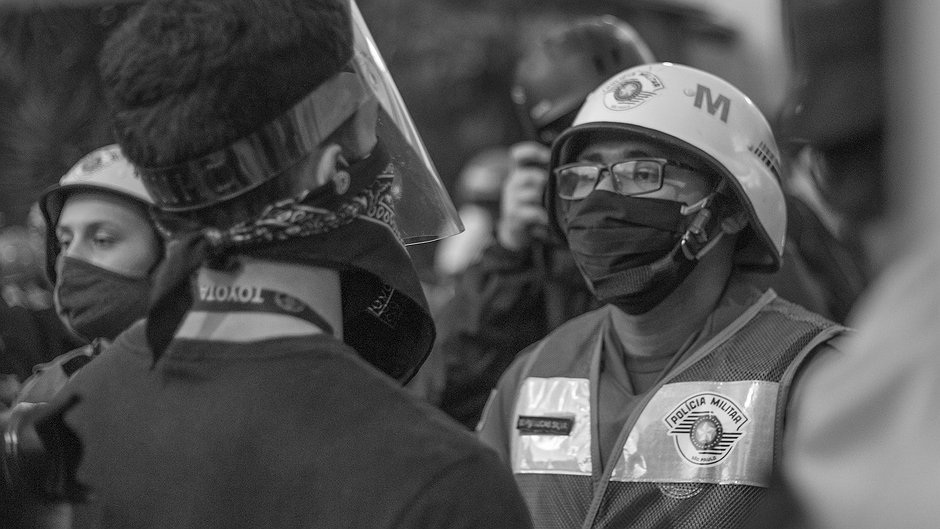
Year in Review: What Advocacy Assembly learned in 2022
There's no question that 2022 has been a year filled with uncertainty and upheaval. From the war in Ukraine to the protests in Iran, human rights defenders, activists and journalists bear the brunt of such conflict and instability. To help them, Advocacy Assembly has engaged in various activities and events throughout the year bringing about meaningful collaborations with our partners that have only brought us closer together.
So before entering 2023, we’d like to reflect on the most important news that passed, along with the hope that the new year will bring even more opportunities to create long-lasting impact together.
1. Advocacy Assembly Shutdown Academy
The creation of the Shutdown Academy resulted from the increasing number of government-ordered internet shutdowns around the world. According to Access Now, in 2021 there were 182 internet shutdowns in 32 countries around the globe. And this trend has only been growing over the past decade. With throttling, blockages and blackouts on the rise in Africa, the Middle East and Asia, people affected needed all the necessary tools to fight back. The Shutdown Academy features ten courses in 8 languages, taught by experts from leading organisations, designed to educate activists, journalists and anyone impacted by internet disruptions and online censorship.
Up until now, through the Advocacy Assembly e-learning platform we have launched two courses:
- Documenting human rights violations during internet shutdowns, presented by Witness and
- Measuring internet censorship through OONI tools and open data, presented by the Open Observatory Network Interference
In January, we will begin promoting our third course, Introduction to internet shutdowns, presented by Access Now. So far, our online e-learning Shutdown Academy has trained hundreds of people worldwide, preparing them to be ready before, during and after internet shutdowns.
2. Launch of new Advocacy Assembly platform
As human rights violations are on the rise around the world, there is a growing need for human rights defenders, advocates and journalists to build their digital skills so they can make an impact through their work. To meet their needs, our e-learning platform will expand from Arabic, English, Persian and Spanish to also include French, Swahili, Portuguese, Russian and Uzbek. Not all courses will be translated into these new languages, but we will do our best to localise course material where possible. So stay tuned for a new interface in new languages in 2023!
3. New collaborations, new partnerships
As part of the launch of the Shutdown Academy, we have partnered with leading organisations from around the world. Taught by experts in their field, you will learn everything from the basics and general concepts of internet shutdowns to more specialised topics like measuring and mitigating them and advocating and litigating against them.
Below you will find a list of all the courses and the organisations presenting them.
Courses & Partners:
1. Documenting Human Rights Violations During Shutdowns (WITNESS)
2. Measuring Internet Censorship with OONI tools (OONI)
3. Introduction to Shutdowns (Access Now)
4. Documenting Shutdowns: Network Measurements (IODA)
5. Developing an Action Plan for Internet Shutdowns (Internews)
6. Mitigating Online Censorship (VESinFiltro)
7. Mitigating Internet Shutdowns (VESinFiltro)
8. Public Advocacy Campaigns Against Shutdowns (Access Now)
9. Strategic Litigation Against Shutdowns (Access Now)
10. Engaging With the Private Sector To End Shutdowns (Global Network Initiative)
4. Iranian protests and internet shutdowns
Since Masha Zhina Amini, a 22-year-old Kurdish-Iranian woman died while in the custody of Iran’s so-called “morality police”, we have been witnessing one of the largest waves of protests in Iran in recent history. In the face of major ongoing protests, Iranian authorities have once again resorted to using force and violence against protestors and have imposed internet shutdowns to silence them. Up until today there have been increased levels of internet censorship, such as the blocking of WhatsApp, Instagram, Linkedin, Skype, Google Play Store, Apple App Store, and encrypted DNS. Click here to read the key findings on both internet shutdowns and human rights violations in Iran.
5. War in Ukraine and digital dictatorship
Since the start of the invasion of Ukraine, internet shutdowns have become a digital arm of Russian military strategy. By shutting down the internet, they prevent Ukrainian people from sharing or receiving news about the war and stop them from communicating with the outside world. Internet shutdowns make it extremely difficult for activists, journalists, and others to report war crimes or coordinate resistance.
But it's not only in Ukraine that the free flow of information is taking place. Russia is controlling the internet and censoring foreign websites and platforms. Since the beginning of the war, TikTok and Netflix are suspending their services in the country. Facebook has been blocked, Twitter has been partly blocked, and YouTube’s future is in doubt. Apple, Samsung, Microsoft, Oracle, Cisco and others have pulled back or withdrawn entirely from Russia.
Our new Shutdown Academy courses in our new e-learning platform will be featured in Russian among other new languages. We hope in this way we will help Russian activists and journalists make a greater impact through their work!
Related courses

90 mins
 School of Data
School of Data
90 mins
 School of Data
School of Data Rory Peck Trust
Rory Peck Trust
50 mins
 Rory Peck Trust
Rory Peck Trust
Blogs

6 useful resources for journalists covering Covid-19
With a global pandemic spreading throughout the world, journalists are under increasing pressure to report accurate and relevant news for the masses. Often when covering a crisis, those on the reporting frontlines compromise their physical safety and mental health. To show some solidarity, the Advocacy Assembly team curated a list of useful resources from other organisations leading the way on this.

5 ways to find data for your next story
Data journalism is fast becoming a big trend in newsrooms across the globe. However, data isn’t always so easy to find. Here are five ways to get data for your next article.



